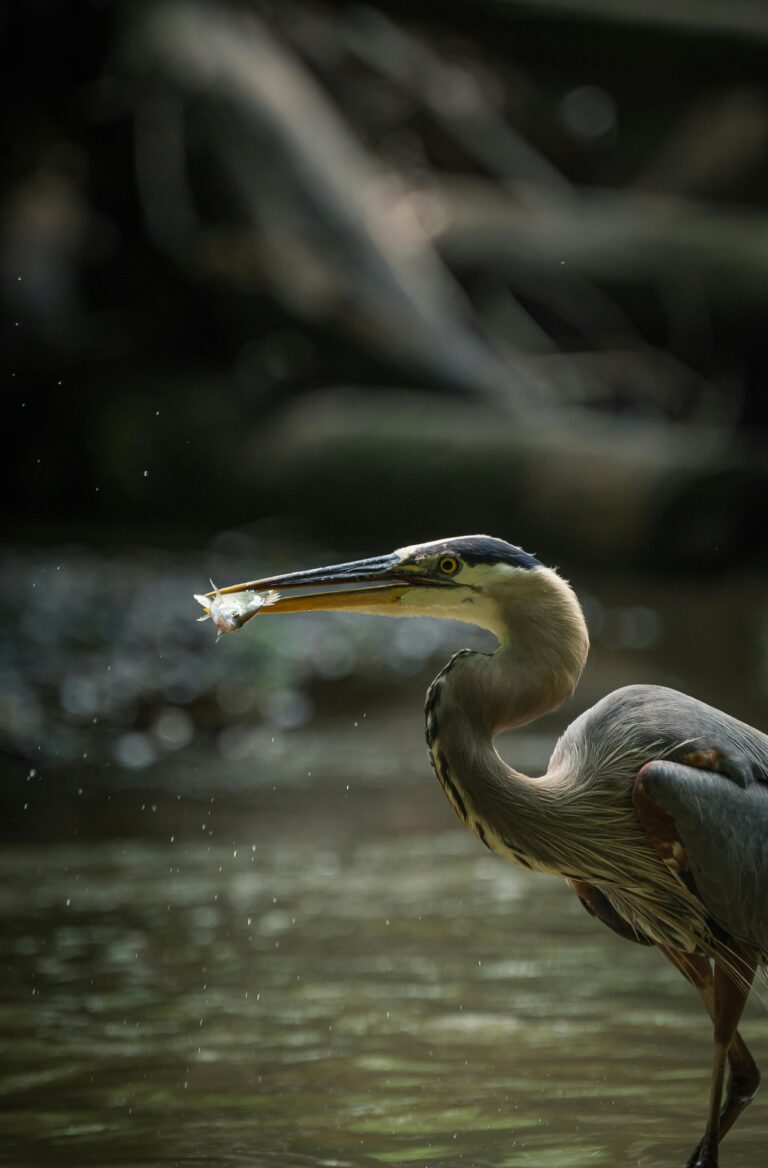
Hey everyone, welcome back to Feathered Mates! Today I will talk to you about What Do Herons Eat?
Herons are fascinating birds with diverse diets that vary depending on their species, habitat, and available food sources. These long-legged wading birds belong to the family Ardeidae and are found across the globe in wetlands, rivers, lakes, and coastal regions. Their opportunistic feeding habits make them versatile predators. In this article, we will explore the specifics of what herons eat, including answers to common questions about their diet and behavior.
Today we will try to learn about do herons eat ducks or do herons eat ducklings, do blue herons eat tadpoles, what animals in the swamp aread eat herons, do herons eat foxes, do herron eat squid, do blue herons eat largemouth bass, do herons eat mallards, do herons eat other birds, do herons eat fish, do herons eat frogs, what do great blue herons eat, what do great blue herons eat, etc.
Table of Contents
What Do Herons Eat?
Herons are carnivorous birds that feed primarily on aquatic prey. Their diet varies depending on their habitat, species, and availability of food. Common food sources include:
- Fish: The primary food for most heron species. Using their sharp beaks, herons spear or grab fish, swallowing them whole.
- Frogs: Herons frequently hunt frogs in wetlands and shallow waters.
- Crustaceans: Crabs, shrimp, and crayfish are essential components of their diet in coastal and freshwater regions.
- Insects: Large insects like grasshoppers, beetles, and dragonflies are often consumed, especially by younger herons.
- Small Mammals: Herons occasionally feed on small rodents like mice and voles when fish and aquatic prey are scarce.
- Birds and Bird Eggs: Larger herons, like the great blue heron, may eat smaller birds and their eggs if the opportunity arises.
- Reptiles and Amphibians: Lizards, snakes, and salamanders are also part of their diet.
- Tadpoles: Young amphibians, especially tadpoles, are easy prey for herons.
Herons are skilled hunters that use stealth and patience to catch their prey. Let’s dive deeper into specific questions about their diet.
Do Herons Eat Ducks or Ducklings?
Herons are majestic wading birds often admired for their graceful presence in wetlands, marshes, and along the shores of rivers and lakes. Known for their long legs, slender necks, and spear-like beaks, herons are skilled hunters with a diverse diet. But one intriguing question often arises: do herons eat ducks?
The answer may surprise you. While herons primarily feed on fish, amphibians, and small mammals, they are opportunistic predators and have been known to target ducklings under certain circumstances. Let’s dive deeper into the dietary habits of herons and explore whether ducks are a regular part of their menu.
The Heron’s Diet: A Closer Look
Herons are carnivorous birds with a highly adaptable diet. Their primary prey includes:
- Fish: The staple of a heron’s diet, fish are often caught using the heron’s sharp, pointed bill. They employ a combination of stillness and stealth to strike their prey with precision.
- Amphibians: Frogs and newts are common prey, especially in freshwater habitats.
- Crustaceans: In coastal areas, herons may hunt crabs, shrimp, and other small crustaceans.
- Insects: Grasshoppers, dragonflies, and other large insects can supplement their diet.
- Small Mammals and Reptiles: Herons have been observed preying on mice, voles, and even small snakes.
Herons are opportunistic feeders, meaning they’ll seize any prey that is accessible and manageable. Their ability to adapt their diet to available resources makes them successful hunters in a variety of environments.
Do Herons Eat Ducklings?
While herons do not actively hunt adult ducks, they are known to prey on ducklings in specific scenarios. Ducklings are small, vulnerable, and often easier to catch than other prey. A heron might target ducklings if they are abundant in the area and other food sources are scarce.
Here are some reasons why herons might eat ducklings:
- Opportunistic Behavior: Herons are not picky eaters. If a duckling ventures too close or is left unattended, a heron might take advantage of the opportunity.
- Nutritional Needs: Ducklings are a rich source of protein and can provide valuable nutrients for herons, especially during breeding seasons when their energy demands are higher.
- Habitat Overlap: Herons and ducks often share the same habitats, increasing the likelihood of encounters.
It is worth noting that herons are solitary hunters, so instances of herons preying on ducklings are not common but do occur.
How Do Herons Catch Ducklings?
Herons employ stealth and patience to hunt. When targeting ducklings, they use similar techniques as they do for fish and other prey:
- Stalking: Herons approach their prey slowly and quietly, minimizing movement to avoid detection.
- Striking: With lightning-fast reflexes, herons use their sharp beaks to grab or spear their prey.
- Swallowing Whole: Herons have a remarkable ability to swallow their prey whole, and ducklings are no exception. Their flexible necks and expandable throats allow them to consume prey larger than you might expect.
Protecting Ducklings from Herons
If you are a duck enthusiast or manage a pond with a duck population, you may want to take measures to protect ducklings from potential predators like herons. Here are some tips:
- Provide Cover: Plant aquatic vegetation or install floating platforms to give ducklings places to hide.
- Use Decoys: Herons are territorial and may avoid areas where they believe another heron is present. Decoy herons can deter them from approaching.
- Netting: Installing netting over small ponds can prevent herons from accessing the water and preying on ducklings.
- Supervision: If possible, monitor ducklings, especially during their early days when they are most vulnerable.
The Balance of Nature
It’s important to remember that herons preying on ducklings is a natural occurrence and part of the ecosystem’s balance. Predation plays a role in controlling populations and ensuring that resources are not overexploited. While it can be distressing to witness, it is a testament to the adaptability and survival instincts of herons.
So, do herons eat ducks? The short answer is yes, but with some clarification. Herons are not active predators of adult ducks but may prey on ducklings when the opportunity arises. Their opportunistic feeding behavior and adaptability make them skilled hunters capable of taking a wide range of prey.
Understanding the dietary habits of herons can deepen our appreciation for these fascinating birds and the intricate dynamics of the ecosystems they inhabit. If you’re passionate about protecting ducklings or simply observing nature, being aware of these interactions can enhance your experience.
For more insights into bird behavior and wildlife care, visit Feathered Mates.
Do Blue Herons Eat Tadpoles?
Yes, blue herons eat tadpoles, especially in wetland areas where amphibians are abundant. Tadpoles are an easy and nutritious food source for herons, especially during the breeding season when frogs lay their eggs in large numbers. Herons use their sharp beaks to scoop tadpoles from the water, ensuring they don’t escape.
What Animals in the Swamp Area Eat Herons?
Herons, though predators, also face threats from larger animals in their habitats. In swamp areas, the following animals may prey on herons:
- Alligators and Crocodiles: These reptiles can ambush herons as they wade through the water.
- Snapping Turtles: Large snapping turtles may attack herons when they come too close to the water.
- Foxes: Red foxes and other fox species can prey on herons, particularly juveniles or nesting adults.
- Raptors: Birds of prey like eagles and hawks may target herons, especially young ones.
Herons rely on their sharp senses and flight ability to avoid becoming prey.
Do Herons Eat Foxes?
It is highly unlikely that herons eat foxes. Foxes are too large and aggressive for herons to handle. Herons primarily feed on smaller, manageable prey. A fox is more likely to prey on a heron than the other way around.
Do Herons Eat Squid?
Yes, herons may eat squid if they are in coastal or marine environments where squid are present. Although squid are not a typical part of a heron’s diet, they will opportunistically consume them when available. Coastal herons, like the Pacific reef heron, are more likely to encounter and eat squid.
Do Blue Herons Eat Largemouth Bass?
Yes, blue herons are capable of eating largemouth bass. However, they usually target smaller fish that are easier to swallow. If a largemouth bass is small enough to fit into their beak and throat, a heron will not hesitate to catch and consume it. Larger bass, however, are typically too big for herons to handle.
Do Herons Eat Mallards?
While herons are unlikely to target adult mallards, they may prey on mallard ducklings. Mallards are generally too large for herons to hunt effectively, but ducklings are vulnerable and can become part of a heron’s diet if the opportunity arises.
Do Herons Eat Other Birds?
Yes, herons do eat other birds, especially smaller ones. Herons have been observed preying on sparrows, starlings, and even young waterfowl. They are opportunistic hunters and will consume any prey that is small enough to swallow. This behavior is more common in larger heron species, like the great blue heron.
Do Herons Eat Fish?
Fish form the majority of a heron’s diet. Herons are highly skilled at catching fish, often standing motionless in shallow water before striking with precision. They can catch a wide range of fish species, including:
- Minnows
- Perch
- Trout
- Bass
- Catfish
Herons have specialized neck muscles and sharp beaks that make them efficient hunters of fish.
Do Herons Eat Frogs?
Yes, herons eat frogs regularly. Frogs are a staple in the diet of herons, particularly in wetland habitats. Herons catch frogs both in the water and on land, using their quick reflexes and sharp beaks to snatch them.
What Do Great Blue Herons Eat?
Great blue herons are among the most adaptable and versatile heron species. Their diet includes:
- Fish: The primary component of their diet.
- Amphibians: Frogs, toads, and salamanders.
- Reptiles: Small snakes and lizards.
- Insects: Large insects like grasshoppers and beetles.
- Small Mammals: Rodents like mice and voles.
- Birds: Small birds and their eggs.
- Crustaceans: Crabs and crayfish in coastal areas.
Great blue herons are known for their adaptability, feeding on whatever prey is available in their habitat.
Herons are opportunistic feeders with a diverse diet that includes fish, frogs, crustaceans, insects, small mammals, and even other birds. Their adaptability allows them to thrive in a variety of environments, from swamps to coastal areas. Whether it’s a great blue heron snatching fish or a smaller heron hunting tadpoles, these birds are skilled predators.
Click here to know What Do Birds Eat?
It can be said that birds are very peaceful creatures and they always fascinate us with their behavior. So, As a responsible bird owner, acquiring the necessary knowledge about birds is of course very important. Every bird owner should understand and review accurate information about birds and guide birds properly. Hope we have helped you enough to know What Do Herons Eat? Stay with us to learn about the right bird selection, bird care, birds nests and all things related to birds. May the relationship between you and your pet become stronger.
By understanding the dietary habits of herons, we gain insight into their role in the ecosystem and the fascinating behaviors that make them unique.
Latest Posts From Here

Best Bird Bath Heaters
Best Bird Bath Heaters Hey everyone, welcome back to Feathered Mates! Today I will talk to you about the Best

Guide to Choosing the Best Modern Birdbaths
Best Modern Birdbath Hey everyone, welcome back to Feathered Mates! Today I will talk to you about the modern birdbaths.

Guide to Choosing the Best Fountain Birdbath
Best Fountain Birdbath Hey everyone, welcome back to Feathered Mates! Today I will talk to you about the Fountain Birdbath.
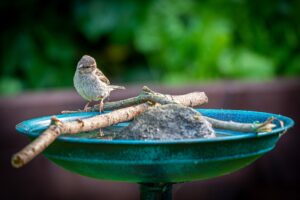
Best Bird Bath Tops
Bird Bath Tops Hey everyone, welcome back to Feathered Mates! Today I will talk to you about Bird Bath Tops. A bird
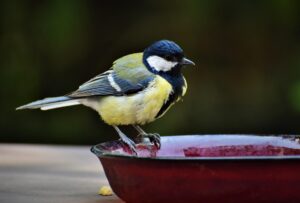
What is a Small Bird Bath?
What is a Small Bird Bath? Hey everyone, welcome back to Feathered Mates! Today I will talk to you about
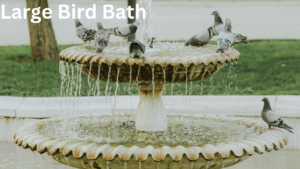
What is a Large Bird Bath ?
What is a Large Bird Bath ? Hey everyone, welcome back to Feathered Mates! Today I will talk to you

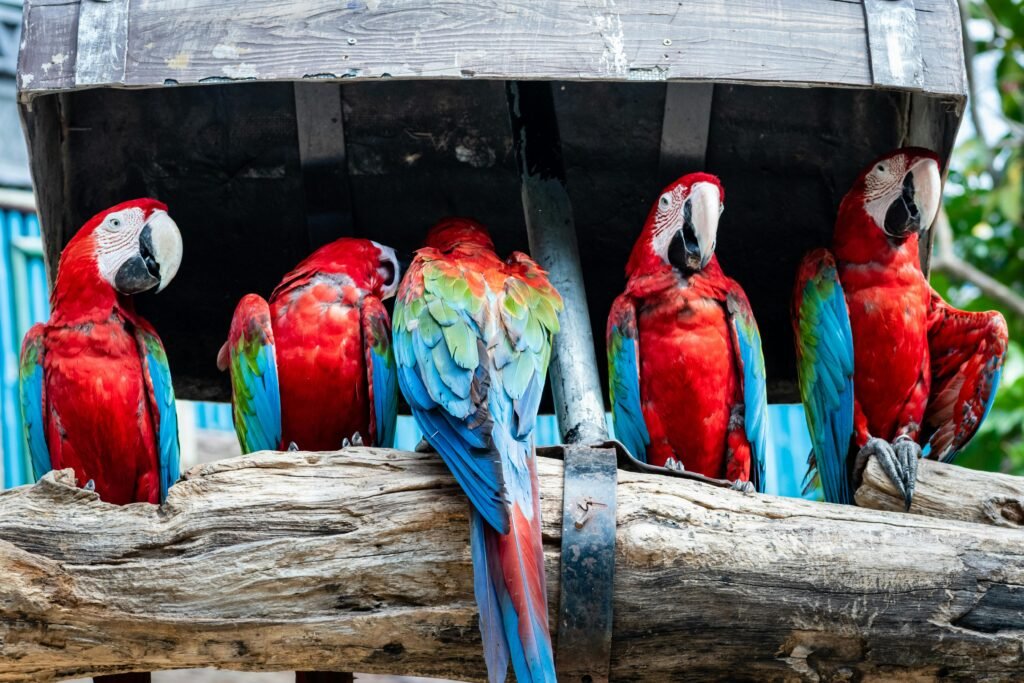
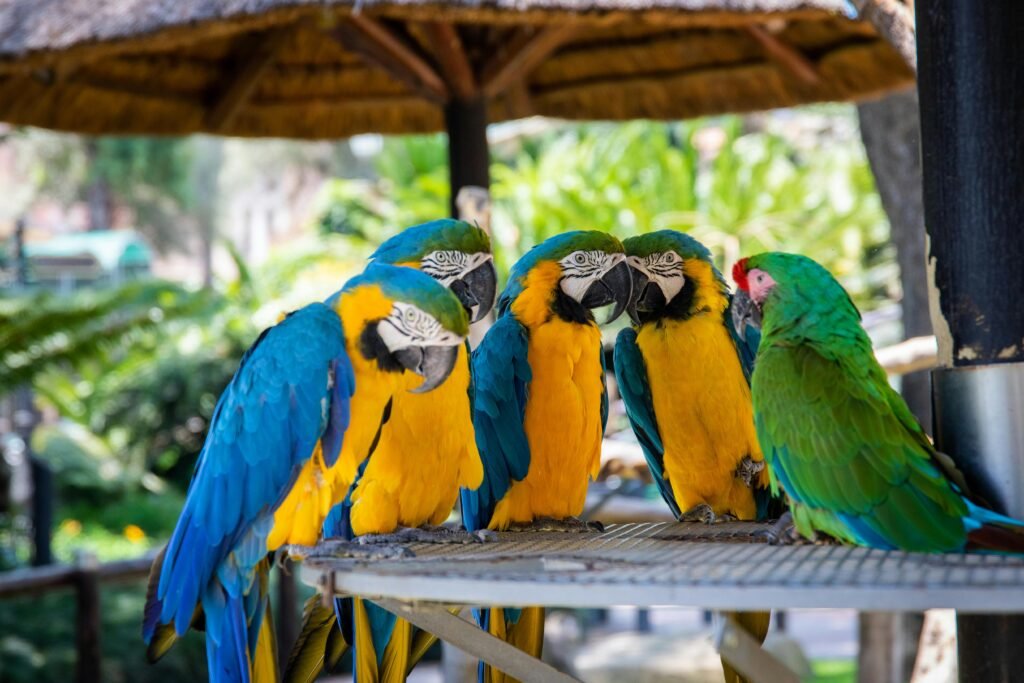
Pingback: What Fruits Can Cockatiels Eat? A Simple List to Follow.